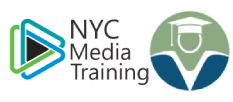Job interviews have a way of making us nervous, forgetful and anxious. One of the best ways to beat the butterflies is to be prepared.
The more you know about the company you’re interviewing for, the better an impression you will make on its hiring managers.
Also, the more confidence you have, the strong you will seem to your interviewer.
But acing the interview takes more than preparation and self-assurance. There are specific items you should bring with you to impress those on the other side of the table. Read on to find out the three most important things to bring so you never again leave an interview without knowing that you gave it your all.
Resumes
The most obvious things to bring to your interview are several copies of your resume. If you know how many people you’ll be interviewing with, bring a few extra in case it goes well and you’re asked to speak with upper management. Don’t forget your own copy that you can reference during the interview.
Having these items with you can serve as presentation notes that you can speak to when asked about certain experiences in your background.
Pack you resumes in a professional-looking folder or briefcase to keep them in sharp, unwrinkled condition.
Notepads
Nothing shows an interviewer that you’re paying attention and are invested in the process like watching you take notes during your meeting.
Wait for key points to come up that relate to the company or the job responsibilities. There is no substitute for solid eye contact throughout your interview, but taking a few notes here and there will help your case.
Remember that you want any materials you take to an interview to be a reflection of what you represent as a professional. Find professional notepads and pens rather than the standard kinds you used in grade school.
Brag Sheets
If you’re a graphic designer, walking into an interview without your portfolio is like walking into a sword fight without a sword. Anyone in the creative services such as writing, advertising or design should have both paper and online portfolios to show. Find your best work and turn it into a brag folder that highlights your best and most diverse work.
Other materials that can make a difference in an interview include letters of recommendation, certifications, accolades and successful policies you have written for past companies. The goal is to leave your interviewer with an impressive stack of materials that both tell your professional story and sell your potential.




